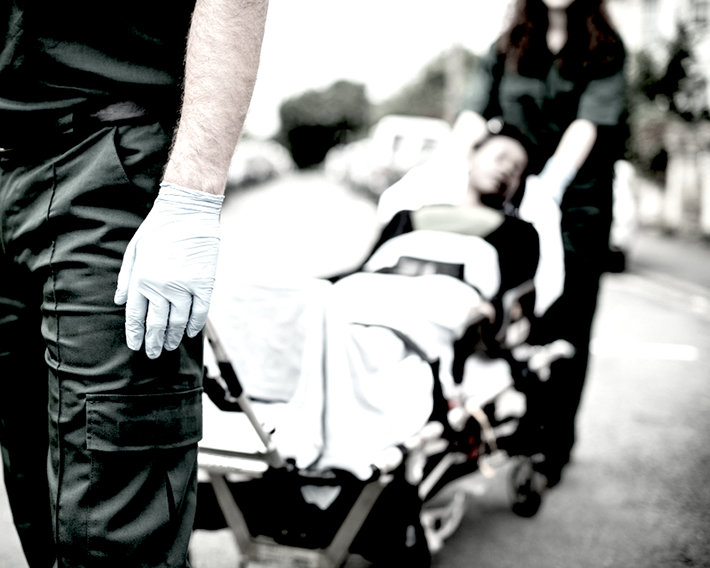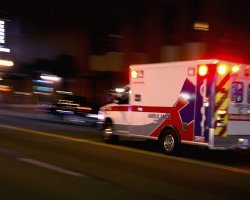Heroin Overdoses on the Way Down in Some Areas, Band-Aid for the Real Problem

Heroin addiction. The term itself brings out feelings of discomfort, sadness, and heartache. It seems like everywhere we turn there is another story of an individual who died from a heroin overdose—a life lost, a family tormented. Heroin addiction statistics surged in the first part of the 21st-century. The drug is still heavily used today.
It would seem that heroin overdoses are slowly receding, at least in certain areas, but that shouldn’t be taken solely as good news. Heroin overdoses might be receding, but heroin addiction is still as harmful and prominent as ever, if not more so.
News Reports on Reduced Heroin Overdoses
From 2017 to 2018, some U.S. states saw a reduction in the number of people showing up in emergency room for heroin overdoses. This is the first time such a decline was reported in well over a decade. And any time fewer people are dying from drug overdoses, that’s something to be thankful for.
A U.S. News article from March 16, 2019, reported on a study done by the National Center for Injury Prevention and Control. The research presented findings that emergency department-reported heroin overdoses had decreased in about 22 states, plus Washington, D.C.
According to Alana Vivolo-Kantor, a health scientist involved in the research: “From 2017 to 2018, heroin overdoses treated in emergency departments in 22 states and Washington, D.C., decreased almost 22%.”
What Changed?
There are a few insights as to what led to a reduction in heroin overdoses in the 22 states. Some of the reasons given were:
- Early intervention. When a region has been struggling with overdose issues long enough, that region usually modifies its efforts towards intervening on addicts before they overdose. The age-old concept of “Wait until the addict hits rock bottom” is left by the wayside and families, communities, even local governments make a bold attempt to intervene fast. This is the correct approach, but only if the technique of intervention is based in getting addicts into residential treatment as soon as possible. Other forms of intervetion offer too much risk for relapse and will not offer sustainable (ongoing) reductions in overdose.

- Localized response. Many of the afflicted regions, like a town in Massachusetts, instituted changes in their response methods, making it easier for responders to get to addicts and to change how addicts and their friends were treated during a response. For example, Gloucester, Massachusetts instituted “Good Samaritan” laws, stating that no individual who reported an opioid overdose to emergency responders would be held liable for any criminal charges for being connected to a drug user. The law was even extended to the addicts themselves. If addicts sought help, they were safe from criminal implications. More addicts sought help, fewer addicts died. And again, this is good news—but only if those addicts are getting help through residential treatment. Anything else will end up simply being a band-aid approach, perhaps reducing overdose statistics for the time being, but not creating a sustainable reduction in overdoses.
- Wider access to naloxone. When states made the life-saving overdose reversal drug more available to the public, more addicts were responded to during an overdose and were administered this drug. Lives were saved as a result, at least for the time being. The more people who had naloxone on their person (emergency responders and lay people alike) the more likely an overdosing addict would be responded to. Here also it is worth mention that, though naloxone saves people from overdoses, it does not “cure” their condition of addiction. Only residential treatment can help someone overcome addiction.
Naloxone Is Not a Solution to the Drug Problem
Lindsey Vuolo, a director of health, law, and policy at the Center on Addiction in New York City, raised an interesting point. In commenting on the study, she said that “Because this study looked at overdoses related to a specific substance, heroin, it may not capture the full picture of drug overdoses in emergency rooms. Any decline in overdoses related to one type of drug cannot be celebrated when there are increases in overdoses related to other substances.”
At no point should we become overly confident that the heroin epidemic is “All sorted out now” and that we can rest and assume that the trend is on its way down. The overall pattern of drug overdoses and drug deaths is still on its way up. Every year, more people die from drug overdoses. According to the CDC, we lost 52,404 people to drug overdoses in 2015, 63,632 people in 2016 and 70,237 people in 2017. (See, the National Institute on Drug Abuse.)
Overdoses from heroin are only one measure of the drug crisis. When news sources say that the heroin problem is on its way down because a few lives are being saved by naloxone, they paint a false picture. Because residential rehab programs are not being made available for the vast majority of heroin addicts, the heroin problem is actually getting worse, not better.
According to the U.S. Department of Health and Human Services, 886,000 people used heroin in 2017. About 81,000 of those were individuals who used heroin for the first time. About 15,482 people died from the drug in 2017, either from an overdose or from another incident or complication related to the drug.
Helping a Family Member or Loved One Who Is Addicted to Heroin

The main takeaway here is that residential treatment is the clear solution to saving addicts’ lives. Keep in mind that an addict’s life saved today, unless he is helped into a residential treatment center, is an addict whose life might be lost tomorrow. We have to zoom the camera lens out here and think about the big picture. I’m all for efforts taken to save lives, but the focus has to be on freeing people from addiction so they are never at risk for an overdose again.
If you have a family member or loved one who is struggling with an addiction to heroin, it is essential to seek help for them rapidly. This is not a problem to put on the back burner. Heroin addiction and all types of drug habits are addictions to toxic substances that increase in risk the more one takes them. The longer an addict continues to use heroin, the higher their risk of overdosing.
It’s safe to say that just about every heroin addict in America has someone who cares about them, someone who would mourn their absence, someone who would grieve their loss. Often, the family members and loved ones of addicts feel as though there is nothing they can do to prevent that loss and halt that dwindling spiral of addiction that is so symbolic of heroin abuse. The truth is, we can have a positive effect on our addicted loved ones.
Our mission is to help them get help, ideally through a residential drug and alcohol addiction treatment center.
While it might not seem like it at first, most addicts do want to get help. They are usually too crushed within their habit to come out and openly ask for help, but that does not mean we shouldn’t do our best to help them and to keep trying to help them until they agree to seek treatment.
One aspect I did not see mentioned in the study above was how effective the personal efforts of the family members and loved ones of addicts have been in getting addicts the help they need. I can only imagine that such a statistic would be nigh on impossible to determine, but it is not something we should forget about. In fact, I am quite sure that a big part of the reason why overdoses started dropping in the states most heavily affected by the heroin crisis was because of the efforts of the families to get their loved ones into rehab.
We are our own greatest tool in reducing the heroin epidemic. We have to take action and help those around us who struggle with addiction.
Sources:
- https://www.usnews.com/news/health-news/articles/2019-05-16/heroin-ods-have-started-declining-in-some-states
- https://ajph.aphapublications.org/doi/abs/10.2105/AJPH.2019.305053
- https://www.theatlantic.com/health/archive/2015/05/gloucester-massachusetts-police-department-helping-not-arresting-drug-addicts/392873/
- https://www.cdc.gov/mmwr/volumes/67/wr/mm6712a1.htm
- https://www.cdc.gov/media/releases/2018/p0329-drug-overdose-deaths.html
- https://www.drugabuse.gov/related-topics/trends-statistics/overdose-death-rates
- https://www.hhs.gov/opioids/about-the-epidemic/index.html


 ®
®